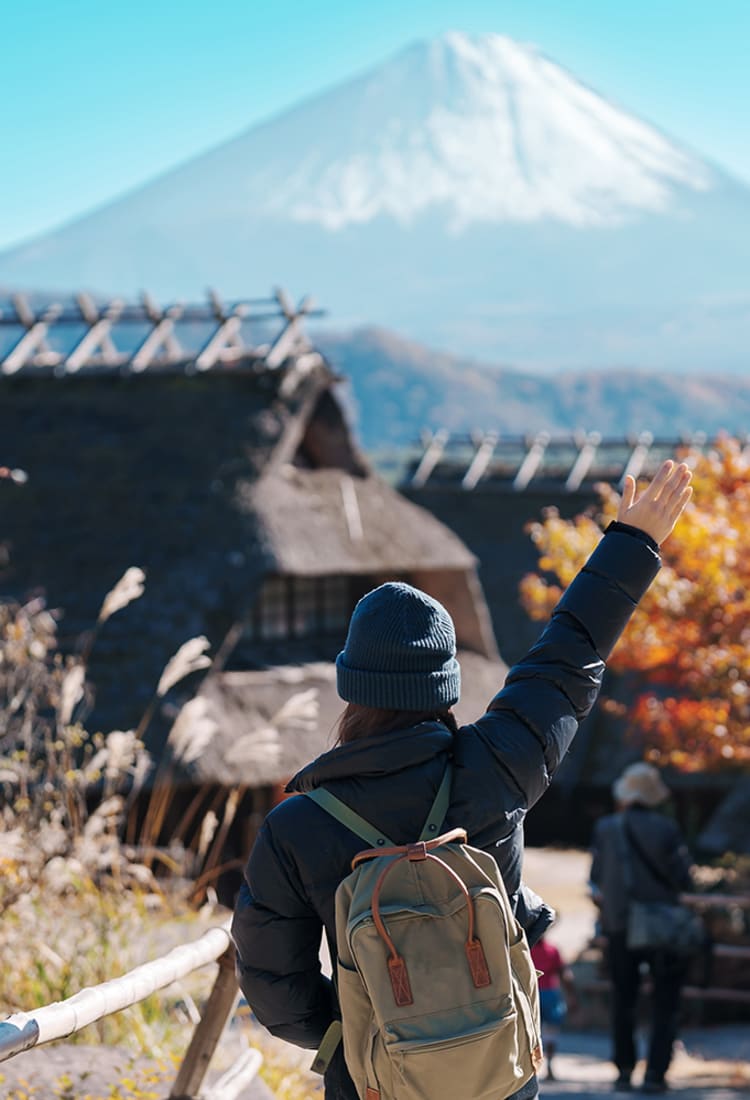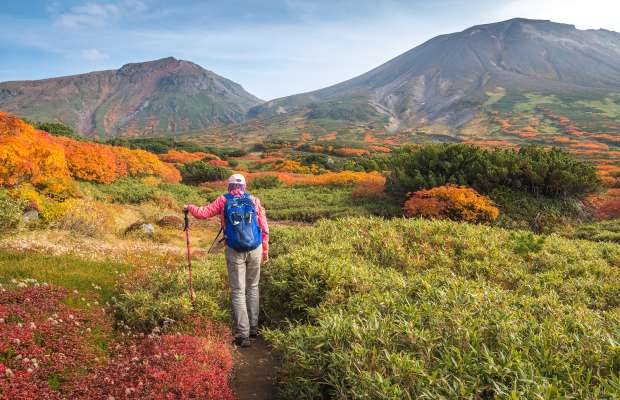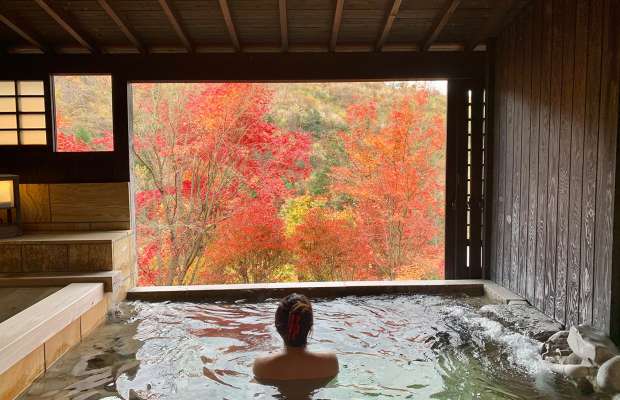
2025.8 Solo in Japan: Why 2025 Is the Best Year to Explore Alone When it comes to solo travel, Japan stands out as one of the most convenient and rewarding destinations.
When it comes to solo travel, Japan stands out as one of the most convenient and rewarding destinations. From delectable cuisine and litter-free streets to world-class public transportation and exceptional safety, the country offers everything a solo traveler could want. As more people choose to explore on their own, Japan is rising to meet the moment, rolling out an array of experiences designed specifically for the solo adventurer. Read on to find out the top three reasons Japan is perfect for solo travel!
1. Table for One! Japan Has the Best Bites for Solo Foodies

From casual ramen joints to Michelin-starred sushi restaurants, dining establishments in Japan are both convenient and congenial for single diners. Solo dining is acceptable in Japanese daily life—busy office workers may enjoy a quiet meal out on their own. Single tourists, also, can relax in a restaurant, where they can take their time to savor the culinary scene without pressure or judgment. Many restaurants feature counter seating—perfect for solo diners—often right in front of the chef who is preparing their meal.

The solo experience in Japan goes far beyond food. It’s common for people to sing their hearts out alone at karaoke boxes or do battle in arcade games for some solo fun. Even traditional activities like soaking in an onsen (hot springs) or practicing zazen (Buddhist meditation) at a temple are naturally suited to individuals. Simply put, going it alone isn’t just accepted in Japan—it’s celebrated.
2. Feel Free to Explore in One of the World’s Safest Countries

Japan is widely regarded as one of the safest countries in the world, making it an ideal destination for anyone—but especially for first-time or solo female travelers. The transportation system is reliable and easy to navigate in English, and the crime rates are reassuringly low. In Japan, you can truly embrace the freedom of solo exploration, and you can feel safe walking in most streets even after dark.

One activity where some caution is advised, however, is venturing into Japan’s wilderness. Remote areas like the Kumano Kodo pilgrimage route or the alpine trails of Kamikochi offer magnificent scenery—but also limited phone reception and the occasional bear sighting. If you’re heading into nature alone, it’s highly advisable to register your plans with a local tourist center or national park visitor center, if there’s one in the area, and to make sure you are prepared for the conditions on the day.
3. Budget-Friendly Options Perfect for Solo Stays

Budgeting for your trip in Japan should be straight-forward. Prices in most shops and restaurants are clearly marked so you don’t need to worry about haggling or tipping.
Plus, as the country that gave rise to the salaryman lifestyle, Japan is well acquainted with solo business travelers. Affordable business hotels exist in nearly every city across the country, often with some perks that single guests can appreciate, such as discounted rates, complimentary coffee, or in-room garment steamers. For those on a tighter budget, youth hostels and guesthouses are a reliable choice. In addition, more and more hotels are opting to drop the single-occupancy surcharge as the demand for single rooms continues to rise.

Solo adventurers can now choose alternative travel experiences that go beyond traditional stays. Opportunities like conservation work, lending a hand on farms, and temple stays offer instant connections with others who share a particular passion. It's a rewarding way to meet locals and experience the authentic day-to-day rhythm of life in Japan—far off the tourist trail.
For a real embrace of solitude, travelers can rent a traditional Japanese home in the countryside for a week or a month. Not only is it affordable and easy to arrange, but it provides a completely immersive cultural experience free of the usual hotel trappings.
Solo, Not Alone—Make Meaningful Connections in Japan

With Japan’s efficient infrastructure and welcoming atmosphere, you can feel at ease and embrace new encounters. The culture of connection runs deep—whether it’s traditional practices like communal onsen bathing and tea ceremony or modern activities like free flow plans at izakayas and local community events organized online, the Japanese culture of “fureai” (connectedness) is always part of the experience.
Related Links
JNTO Tourist Information Center |
How to travel by train and bus in Japan |
|
https://www.japan.travel/en/guide/how-to-travel-by-train-and-bus-in-japan/ |
MeetUp |




























































